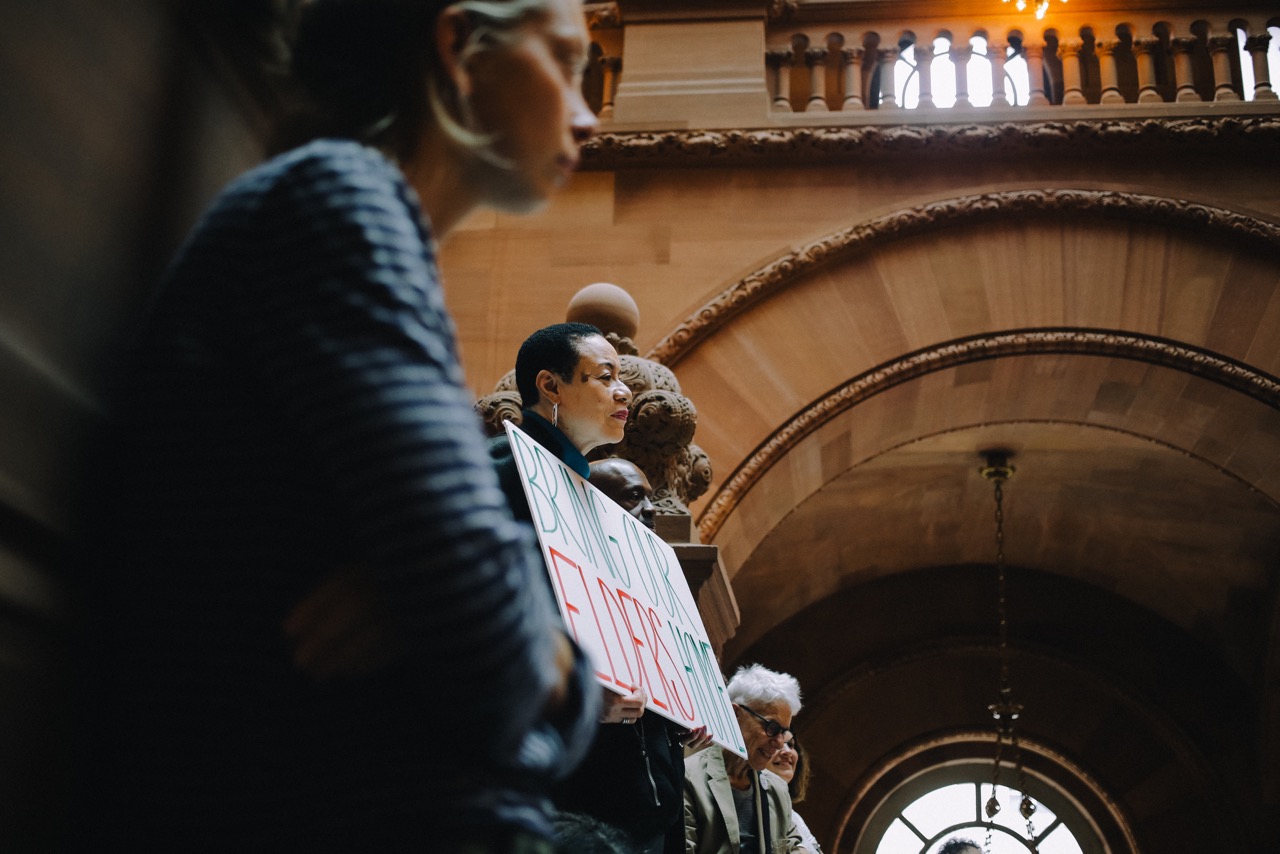Opinion: Passing Elder Parole Bill is a moral imperative
/Activist Della Johnson attends an Albany rally to release older adults from prisons. Photo via RAPP
By Della Johnson and Claire DeRoche
As devout people of faith, we believe in the inherent dignity of all human beings, including those who are arrested, detained and sent away to New York State prisons. This guiding, faith-based principle should be extended to those who are aging, despairing and dying in our state prison system, including those who have caused serious harm and been convicted of violent crimes.
Our Christian and Unitarian Universalist faiths demand that we be guided by values of mercy, redemption and compassion — values that aren’t upheld but instead fundamentally violated by laws that permanently punish Queens residents and New Yorkers throughout our state prisons.
As a result of long prison sentences and few opportunities for parole release, our state has seen a rapid increase in the number of older people in prison. Elders now make up roughly 20 percent of all imprisoned New Yorkers — more than 10,000 total older people.
Since we are longtime residents of Queens, this issue particularly hits home for us when we consider that 23 percent of Queens residents in New York State prisons are older people. Nearly 23 percent of all imprisoned Queens residents are also serving life sentences. This is a true stain on our beautiful borough.
Most tragically, the crisis of mass aging in prison inevitably leads to mass death behind bars.
Since the start of Gov. Andrew Cuomo's tenure, more than 1,000 people have died in a New York State prison, the large majority of whom were older people who could have been safely released.
Instead of sentencing people to capital punishment, we now sentence people to death-by-incarceration. This is the death penalty by another name, and no matter how awful someone’s crime may be, legally sentencing someone to die in prison without any possibility for parole is morally wrong. It also makes all of us worse off.
Much like the death penalty, overwhelming research now shows that sentencing people to life without parole and equivalent sentences is an ineffective public safety tool. These sentences do not deter crime or promote safety, but instead drive valuable resources away from the very public investments that are more proven to protect us.
There is also growing research that shows most survivors and victims of crime, even those devastated by serious crimes, prefer rehabilitation over keeping people in prison for as long as possible. Despite what some lawmakers might try to convince us, death-by-incarceration serves only the purposes of punishment and revenge, and we should do away with it.
For these reasons and more, the New York State legislature must swiftly pass elder parole (S2144/A4319), pending legislation that would allow people aged 55 and older who have served 15 or more years in prison a consideration of parole release. The bill does not mandate release, but instead allows the State Parole Board to consider and evaluate the release of incarcerated older people.
Elder parole is humane and would save taxpayers millions of dollars in wasted costs associated with locking up older people. It is also rooted in decades of evidence that finds that people in prison age at far faster rates than those in healthier environments in the outside community, and that the large majority of people age out of crime in mid- to late-adulthood.
Not only do formerly incarcerated older people pose minimal risk to public safety, but they actually enhance safety. Formerly incarcerated elders often dedicate their lives to community service and the public good upon release. They are mentors, teachers, anti-violence advocates and they help young people stay off the paths that lead to crime, violence and long-term incarceration. This benefits all of us.
When it comes to the crisis of aging people in New York prisons, our state has two choices: We can enact a safe, humane, fiscally responsible and evidenced-based elder parole policy, or we can continue to permanently punish countless people and sentence them to die in prison.
Let us embrace our values rooted in faith and humanity by taking the righteous path of elder parole.
Della Johnson is a longtime resident of Jamaica and spent more than two decades working as a licensed social worker at Rikers Island. Claire Deroche is a longtime resident of Flushing and social justice activist.




